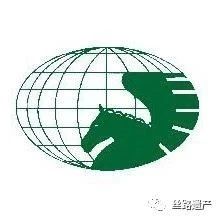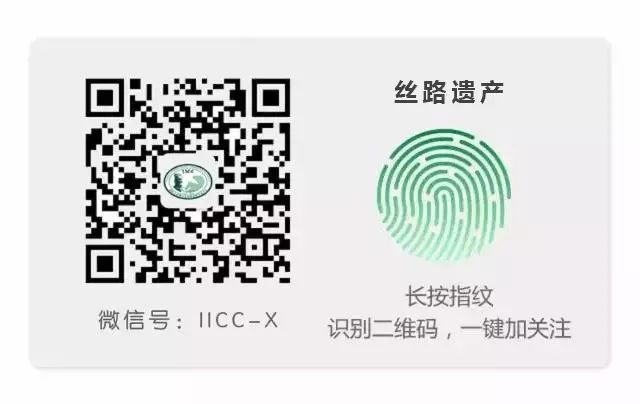深度阅读
ICOMOS主席河野俊行2019新年致辞

新
年
致
辞
近日,ICOMOS主席河野俊行发表新年致辞,ICOMOS CHINA将英文致辞翻译为中文,分享给大家。
英文原文:
New Year Greetings from the President of ICOMOS
Happy New Year! I hope you had a relaxing holiday season. I still vividly remember the warm hospitality of all my Argentinian colleagues at the Advisory Committee and Annual General Assembly meetings in Buenos Aires, and would like to transmit this message as the year 2019 starts. You can also download this letter in English, French and Spanish.
Reviewing the past year and looking ahead, I share some views on how we could improve on the strengths of ICOMOS, and invite your thoughts on this also. The last twelve months have been a learning process for me, since the nature and amount of work as president of ICOMOS is vastly different from that of a vice president. I know the organization better now, and its strengths and weaknesses are clearer to me. As I mentioned in Delhi twelve months ago, I believe our organization's strength lies in the high standard of our members’ work to meet local and global needs and in our diversified international membership.
However, ICOMOS is established in only roughly 70% of the countries of the world, and has a weak presence in others. During my journeys in the past 12 months, I visited heritage sites in several countries for the first time, and saw worrisome situations that might have been averted if we could have supported and coordinated the presence of local experts. Concern for authenticity was absent, and, certainly, none of the charters were applicable to these sites.
First, I intend to visit more countries with weak, absent, or newly established National Committees to better understand their needs. Together, we can explore how ICOMOS International can support them, and explore how their unique needs and experiences can contribute to enrich the heritage narrative, not only within ICOMOS, but for the broader heritage field. Please feel free to suggest initiatives in countries that might welcome a visit.
Second; keeping focus on authenticity as we help manage changes in today's conditions is especially relevant. 2019 is the 25th anniversary year of the Nara Document on Authenticity. You may remember the Nara+20 project presented on the 20th anniversary of the Nara Document at the Florence General Assembly in 2014, which revisited the concept of authenticity from social perspectives. However, many areas related to authenticity remain unelaborated, such as urban heritage, where relevant International Scientific Committees’ involvement as well as National Committees’ views seem crucial. There are also several ways we can contextualize that relevance: link it to the reconstruction and recovery project that has been pursued in order to respond to post-trauma situations by the task force and the Working Group with focal points of interested ISCs and NCs since 2015, as well as to the revision of the Heritage Impact Assessment Guidance. I will share more details on the project soon and invite your opinion.
Also the year ahead may be a defining, and certainly, a challenging one for the World Heritage business of ICOMOS. As you know, since early 2000, there has been tension arising from the ICOMOS recommendations to the World Heritage Committee (WHC) and contrary decisions made by the WHC. To avoid worsening tensions, ICOMOS became more proactive and introduced a mechanism, a dialogue process, for direct communications with nominating State Parties since the evaluation cycle 2015/2016. As I mentioned in Buenos Aires, the positive effects of this dialogue process gradually emerged in 2018, evidenced by the improved substance and tone of oral interventions by the WHC and their more nuanced decisions. But there are still other views. For instance, the ambassador of a member state of the WHC told me personally in Manama that “monopoly is not good”. We should draw our attention to the fact that the WHC in 2018 extended the mandate of its ad hoc working group, which includes “to Discuss the modalities for the possible use of advisory services of other entities with suitable experience and knowledge, in line with UNESCO’s rules and regulations, and in addition to the current three Advisory Bodies” (42COM12A). The working group presents its recommendation to the World Heritage Committee in Baku this July 2019, and the Committee may adopt a resolution. Hence, this year is crucial for the World Heritage business of ICOMOS. I believe that the integrity of the work of ICOMOS, as a neutral and independent NGO, is key in ensuring the credibility of the world heritage system. I will commit my best possible efforts to this purpose, closely collaborating with the other advisory bodies, IUCN and ICCROM.
Last, but not least, in presenting this to you, I encourage you to take these ideas further in your NCs, ISCs, or other forums, and discuss how ICOMOS could strengthen its presence through your work. And I very much look forward to your suggestions on how ICOMOS International could achieve a stronger presence in the world.

Toshiyuki Kono
President of ICOMOS
中文翻译:
新年快乐!我希望您度过了一个轻松的假期。我仍然清楚地记得所有阿根廷的同事为ICOMOS咨询委员会和全体大会在布宜诺斯艾利斯召开期间所提供的热情接待,我希望在2019年新年伊始传达这一信息。您可下载这一信函的英文、法文和西班牙文版本。
回顾过去一年并展望未来,我在此分享一些如何提升ICOMOS能力的想法,同时也欢迎您就此提出建议。过去的一年对我而言是学习的一年,因为ICOMOS这一岗位的性质和工作量与我作为副主席时是非常不同的。我现在对这一组织有了更好的了解,也更加清楚其优势和不足。正如我一年前在德里所说,我相信我们组织的实力体现在成员国为满足本地和全球需求而工作的高标准之中,也体现在成员国构成的国际多元化之中。
然而,ICOMOS成员国目前只包括世界上70%的国家,在其他国家的存在感极其微弱。在过去的1年,我第一次走访了一些国家的遗产地,看到了一些令人担忧的情形——如果我们能够支持并协调当地专家的参与,这些情形本可以被改善。对真实性的关切是缺位的;当然,也没有一条章程适用于这些遗产地。
首先,针对其国家委员会较弱或者是尚未建立或近期才建立国家委员会的国家,我将开展更多的走访,以便更好地了解其需求。通过我们共同的努力,可以了解ICOMOS总部如何向这些国家提供支持,了解这些国家的独特需求和经验如何丰富遗产叙事——不仅在ICOMOS体系中,而且在更大范围的遗产领域。请各位建议哪些国家可能会欢迎这样的访问。
其次,在我们帮助管理当前状况变化的这一过程中,继续关注真实性是尤其有意义的。2019年是《奈良真实性文件》发布25周年。您可能还记得2014年佛罗伦萨大会期间为纪念《奈良真实性文件》发布20周年所提出的“奈良+20项目”。该项目从社会角度重新回顾了真实性这一概念。不过,与真实性相关的诸多领域并未得到深入阐述,如城市遗产——相关国际科学委员会的参与和国家委员会的观点是至关重要的。同时还有可以将这一相关性进行情景化研究的其他若干途径:将其与相关国际科学委员会和国家委员会为核心组成的任务小组和工作组所开展的旨在应对战后/灾后重建和复原项目联系在一起,以及与遗产影响评估指南的修订联系在一起。我将很快就该项目更多的细节内容与您分享,并邀请您提出意见。
此外,新的一年也是对ICOMOS世界遗产业务重新定义并具有挑战的一年。如您所知,自2000年初以来,ICOMOS向世界遗产委员会提交的建议与世界遗产委员会作出的决定之间产生了冲突。为避免日益严重的冲突,ICOMOS更加积极主动并引入了一个对话的机制,自2015/2016年度评估周期开始,与提名遗产缔约国开展直接的交流。正如我在布宜诺斯艾利斯所说,这一对话机制的积极效果在2018年逐渐显现,这一点为世界遗产委员会口头干涉内容和语气的改善以及更为微妙的决定所证实。不过,依然存在着其他的看法。比如,某个委员国的大使在麦纳麦私下和我说,“垄断是不好的”。我们应当关注的一点是,2018年世界遗产大会拓展了其特别工作小组的权限职能,包括“依照联合国教科文组织规则,除了目前的三个咨询机构之外,探讨对其它具有适合经验和知识的机构的咨询服务的使用方式”(第42 COM 12A号决定)。工作组将于2019年7月在巴库向世界遗产委员会提交其建议。我相信,ICOMOS作为一个中立和独立的非政府组织,其工作的完整统一性是保证世界遗产体系公信力的关键。我将尽最大努力,通过与IUCN和ICCROM等其它咨询机构密切合作,保证这一目的的实现。
最后,我希望您能够在贵国的国家委员会、国际科学委员会和其他平台进一步传播上述观点,并通过您的工作,探讨如何强化ICOMOS的地位。我十分期待您能够就ICOMOS总部如何在世界范围实现更为有力的存在而提出您的建议。
ICOMOS主席
河野俊行
来源:中国古迹遗址保护协会

